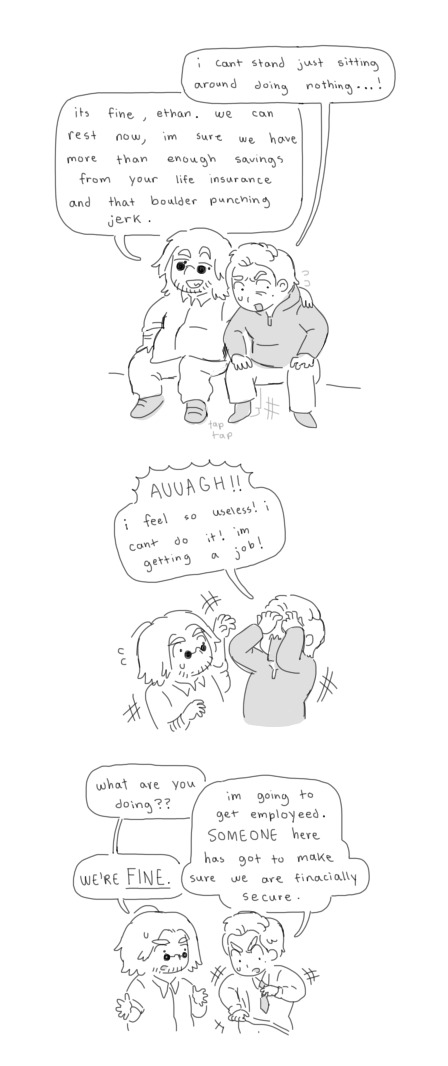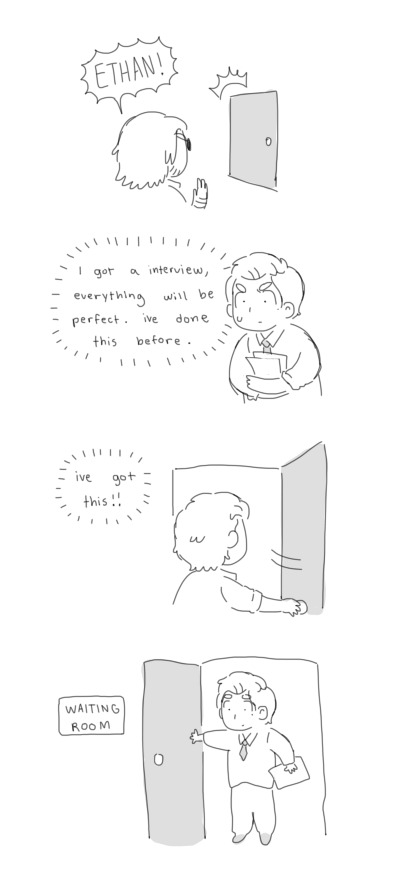#Europe jobs
Text
#europe jobs#government jobs#gulf jobs#it jobs#jobs in usa#jobs in dubai#jobs hustles#jobs#jobs in abu dhabi#jobs secular usa
2 notes
·
View notes
Text

Machine operators [operator utilaje], also known as “Operator Utilaje” in Romanian, are professionals responsible for operating and supervising industrial and agricultural machinery. They oversee tasks on-site or remotely, ensuring the smooth functioning of equipment according to specified procedures. Operating machines [operator utilaje] requires experience, knowledge, and adaptability to technological advancements.
To know more about machine operators [operator utilaje] job profile for Romania country read our full blog.
#machine operator#machine operator jobs#Romanian employment#Europe jobs#abroadjobopportunities#foreignemployment#globaltalentacquisition#internationalstaffing#internationalrecruitmentagency#internationaljobplacement#manpowerconsultancy#overseasrecruitment#recruitment consultancy#workabroad
0 notes
Text

🌍 Ready to Move to Europe?
Let's Make Your Relocation Dreams Come True!
🚀 Our Vocational Training Programs:
We Offer Courses in Housekeeper Training, Waiter/Waitress Training, CNC Machinist Training, and Hotel Management Assistant.
📞 Contact Us Today:
📞 +91 7845830683
#abroadjobs#relocate#relocation#europe#vocationaltraining#waiter#waitress#trainingandupskilling#career#course#traininganddevelopment#education#jobs#opportunities#jobopening#skilldevelopment#housekeeping#mechanical#hotel management#travel abroad#abroad jobs#europe jobs#relocatetogermany#relocatetofrance#relocatetoeurope
0 notes
Text
#government jobs#steve jobs#oil and gas jobs#gulf jobs#part time jobs#jobs in dubai#jobs in abu dhabi#europe jobs#it jobs#jobs hustles
0 notes
Text
The Environmental Implications of Remote Work in Europe
The shift towards remote work in Europe has significant environmental implications, presenting both opportunities and challenges in the continent's efforts to combat climate change and promote sustainability. As European countries strive to meet ambitious climate targets, understanding and managing the environmental impact of remote work has become increasingly important.
One of the most immediate and visible environmental benefits of remote work is the reduction in commuting. With fewer people traveling to and from offices daily, there's been a noticeable decrease in traffic congestion and associated emissions in many European cities. A study by the European Environment Agency estimated that if 20% of EU workers shifted to full-time remote work, it could reduce carbon emissions from commuting by up to 30 million tonnes per year.

Cities like London and Paris have reported improved air quality during periods of increased remote work. This has not only environmental benefits but also positive impacts on public health. However, it's worth noting that these gains could be partially offset if remote workers make more non-work-related trips during the day or if they relocate to areas with less efficient public transportation systems.
The energy consumption patterns associated with remote work are complex. While office energy use has decreased in many European cities, residential energy consumption has increased as people spend more time working from home. The net impact depends on various factors, including the energy efficiency of homes versus offices and the carbon intensity of local energy grids.
Countries with cleaner energy grids, such as Sweden and France, may see greater environmental benefits from the shift to remote work. In contrast, countries still heavily reliant on fossil fuels for electricity generation may experience a less favorable balance. This highlights the importance of coupling remote work policies with broader efforts to decarbonize national energy systems.
The reduced need for office space in city centers presents opportunities for urban greening and repurposing of buildings. Some European cities are exploring ways to convert unused office spaces into residential units or community spaces, potentially reducing the need for new construction and associated environmental impacts. Amsterdam, for instance, has been at the forefront of repurposing vacant office buildings into affordable housing.

However, the trend of remote workers moving to suburban or rural areas could lead to increased urban sprawl, potentially conflicting with land conservation efforts and increasing car dependency. This has sparked discussions in countries like Germany and the Netherlands about how to manage this shift while maintaining compact, sustainable urban development.
The environmental impact of digital infrastructure supporting remote work is an often-overlooked aspect. The increased reliance on cloud services, video conferencing, and other digital tools has led to growing energy demand from data centers. While many tech companies are investing in renewable energy to power their operations, the overall impact of this digital shift requires careful consideration.
European policymakers are increasingly factoring remote work into their environmental strategies. The European Green Deal, which aims to make the EU climate-neutral by 2050, includes provisions for promoting sustainable work practices, including remote work. However, there's recognition that a nuanced approach is needed to ensure that remote work genuinely contributes to environmental goals.
Some European companies are taking innovative approaches to maximize the environmental benefits of remote work. For example, a Finnish tech company has implemented a policy where employees' home office setup must meet certain energy efficiency standards, and the company provides support for upgrades if needed.

The shift to remote work has also influenced consumer behavior in ways that impact the environment. There's been a noticeable decrease in the use of single-use plastics and disposable items often associated with office life. However, this has been partially offset by an increase in home deliveries and associated packaging waste.
The impact on business travel is another significant factor. While the pandemic initially led to a sharp decrease in business trips, there's ongoing debate about the long-term impact of remote work on corporate travel habits. Some argue that occasional in-person meetings will remain necessary, potentially leading to less frequent but longer trips.
Looking ahead, the environmental implications of remote work in Europe will likely evolve. As technology improves and work practices adapt, there may be opportunities for further environmental gains. For instance, advancements in virtual and augmented reality could reduce the need for physical travel even further.
However, realizing the full environmental potential of remote work will require concerted effort and thoughtful policies. This might include incentives for energy-efficient home offices, investment in digital infrastructure powered by renewable energy, and urban planning approaches that balance the benefits of remote work with the need for sustainable communities.

As Europe continues to navigate the complexities of remote work, its environmental impact will remain a crucial consideration. By carefully managing this transition, European countries have the opportunity to leverage remote work as a tool in their broader sustainability strategies, contributing to a greener, more resilient future.
#europe jobs#jobseekers#jobsinindia#online jobs#government jobs#fresher jobs#jobsearch#jobs#near jobs#part time jobs
0 notes
Text
The Ultimate Resource for Acquiring a Work Permit in Finland
Finland, renowned for its high standard of living, excellent work-life balance, and vibrant tech industry, has become an attractive destination for professionals worldwide. If you are considering working in Finland, obtaining a work permit is an essential step. This comprehensive guide will walk you through the process, highlighting key features, eligibility criteria, and essential steps. Our goal is to ensure you have a clear path to securing a work permit and beginning your professional journey in Finland.

Why Work in Finland?
Before delving into the work permit process, it’s essential to understand why Finland is a great place to work. Here are some compelling reasons:
High Quality of Life: Finland consistently ranks high in global quality of life indices, offering excellent healthcare, education, and social security systems.
Innovative Work Environment: Finland is a hub for innovation, particularly in the technology and green energy sectors.
Work-Life Balance: Finnish work culture values balance, with reasonable working hours and ample vacation time.
Cultural Richness: Experience the unique blend of modernity and tradition in Finnish culture, along with its beautiful natural landscapes.
Benefits of Working in Finland
Competitive Salaries: Enjoy competitive salaries and benefits.
Social Security: Access to comprehensive social security and healthcare systems.
Career Growth: Opportunities for professional growth and development.
Innovation Hub: Work in a country known for its innovation and advanced technology sectors.
Cultural Diversity: Experience a diverse and inclusive work environment.
Types of Work Permits in Finland
Finland offers various types of work permits based on the nature of the job and the duration of stay. The most common ones include:
Residence Permit for an Employed Person (TTOL): This is the most common type of work permit for foreign employees. It covers most employment situations.
Residence Permit for a Specialist: For highly skilled workers with special expertise, particularly in IT and technology sectors.
Residence Permit for an Entrepreneur: For individuals planning to start or run a business in Finland.
Residence Permit for a Researcher: For researchers working in scientific or academic institutions.
Eligibility Criteria
To be eligible for a work permit in Finland, you must meet certain criteria:
Job Offer: You must have a valid job offer from a Finnish employer.
Qualifications: Your qualifications and experience must match the job requirements.
Financial Stability: You must have sufficient financial means to support yourself during your stay.
Health Insurance: You need to have health insurance that covers you in Finland.
Clean Criminal Record: A clean criminal record is generally required.
Application Process
Step 1: Secure a Job Offer
Job Offer: Obtain a job offer from a Finnish employer. Ensure the job contract details are clear and meet Finnish labor standards.
Step 2: Prepare Required Documents
Gather the necessary documents for your work permit application:
Valid passport
Passport-sized photos
Job offer and employment contract
Proof of qualifications (diplomas, certificates)
Proof of financial means
Health insurance coverage
Clean criminal record certificate
Application form (available from the Finnish Immigration Service)
Step 3: Submit the Application
Online Application: Submit your application online through the Enter Finland service.
Application Fee: Pay the required application fee. The fee varies depending on the type of permit.
Step 4: Attend an Interview
Interview: You may be required to attend an interview at the Finnish embassy or consulate in your country. Be prepared to discuss your job offer and intentions in Finland.
Step 5: Wait for Approval
Processing Time: The processing time for work permits can vary but generally takes a few months. Check the latest processing times on the Finnish Immigration Service website.
Additional Information: The authorities may request additional information or documents during this period.
Step 6: Receive Your Work Permit
Approval: Once your application is approved, you will receive your work permit. Make sure to understand its validity period and conditions.
Residence Permit Card: You will also receive a residence permit card, which you must carry with you.
Tips for a Successful Application
Early Preparation: Start your application process well in advance.
Complete Documentation: Ensure all documents are complete and accurate.
Stay Informed: Keep updated with the latest immigration laws and requirements.
Seek Professional Help: Consider consulting with immigration experts for guidance.
Meet Us
3A-156, Ground Floor, Near DAV College, K.L. Mehta Road, Faridabad – 121001, INDIA
Call Us
+91 9811318899
Write Us
0 notes
Text

Overseas Workers for Infrastructure Project
#construction recruitment#construction workers#construction industry#construction worker#construction agencies#overseas workers#gulf job#europe jobs
1 note
·
View note
Text
Find your best a pert time Job in Your Home
#jobs#gulf jobs#government jobs#jobs in abu dhabi#fresher jobs#jobs hustles#europe jobs#jobs in dubai#jobs in usa#jobs secular usa
1 note
·
View note
Text
Best part time Job
Find your best a pert time Job in Your Home
#europe jobs#fresher jobs#jobs#gulf jobs#jobs hustles#jobs in abu dhabi#jobs in dubai#jobs in usa#jobs secular usa#government jobs#jobsinindia#near jobs#jobsearch#jobseekers#online jobs#part time jobs#usa jobs news#steve jobs#remote jobs#usa student jobs#thick and juicy#jujutsu kaisen#just girly things#stayc#japan#murder drones#seeun
1 note
·
View note
Text
Find your best a pert time Job in Your Home
#europe jobs#gulf jobs#inside job#job#job applications#job company#job hunting#job interview#job market#job offer
1 note
·
View note
Text
youtube
Are you planning to study in Europe and looking for a job to support your journey? Discover the best job portals to help you land your dream job in Europe.
eurojobs.com eures.europa.eu monster.com stepstone.de/en xing.com/en jobindex
Save this reel for future reference! These websites are perfect for students planning to study and work in Europe.
Visit our website for more details: https://www.edugoabroad.com/ or Contact us on: +91 70690 07131/32/33/34
0 notes
Text
Your Bridge to Dubai: Future Vision Consultancy, Your Premier Partner for Lucrative Job Opportunities in Dubai
Step into the vibrant landscape of Dubai jobs with confidence, courtesy of Future Vision Consultancy, your trusted partner for securing lucrative job opportunities in the Emirates. Our specialized services cater to individuals seeking to kickstart or advance their careers in Dubai, offering tailored guidance and support throughout the process. From job matching to relocation assistance, our dedicated team ensures a seamless transition into the dynamic Dubai job market. Trust Future Vision Consultancy to pave the way for your success in Dubai, setting new standards for excellence in Dubai job placements.

0 notes
Text

Choose the Top Placement Agency!!
#placement agency#recruitment agency#staffing agency#europe jobs#manpower recruitment agency#employment agencies#europe
0 notes
Text




attempt to return to normalcy
#ethan winters#karl heisenberg#wintersberg#resident evil#resident evil fanart#rebhfun#resident evil village#resident evil 8#re8#seriously speaking i cant imagine ethan surviving re8 and then getting another IT job 😭#bro got moved to europe and lived there in paranoia for 3 years before his paranoia got proved RIGHT#ethan can be a stay at home dad and go to therapy 😭#i also think if ethan survived re8 he would be a bit of a helicopter parent#i think he would be so terrified to leave rose#he carries the baby monitor with him everywhere :(
2K notes
·
View notes
Text











#government jobs#it jobs#part time jobs#oil and gas jobs#europe jobs#gulf jobs#jobs in abu dhabi#steve jobs#jobs in dubai#jobs hustles
0 notes
Text
The Psychological and Social Impacts of Remote Work on European Workers
The shift towards remote work in Europe has brought about significant changes not only in how people work but also in their psychological well-being and social interactions. As this work model becomes more entrenched in European professional life, it's crucial to understand its wider impacts on individuals and society.

One of the most frequently cited benefits of remote work is improved work-life balance. Many European workers report feeling less stressed and more in control of their time when working remotely. This is particularly true in countries like Denmark and Sweden, where work-life balance is already a cultural priority. Remote work has allowed people to better integrate their professional and personal lives, leading to increased job satisfaction and overall well-being.
However, the picture isn't uniformly positive. The blurring of boundaries between work and personal life can also lead to difficulties in "switching off" from work. This phenomenon, often referred to as "work-life blur," has been observed across Europe. French workers, for instance, have reported struggling with this issue despite the country's "right to disconnect" law, highlighting the challenges of enforcing such policies in practice.
Social isolation is another significant concern associated with remote work. The lack of face-to-face interactions with colleagues can lead to feelings of loneliness and disconnection. This is particularly challenging in cultures that place a high value on social connections in the workplace, such as in Mediterranean countries like Spain and Italy. To combat this, many European companies are implementing regular virtual social events and encouraging the use of video calls for casual conversations.

The impact of remote work on mental health has been mixed. While some workers report reduced stress levels due to the elimination of commuting and increased autonomy, others have experienced increased anxiety and depression. A study conducted by the European Foundation for the Improvement of Living and Working Conditions (Eurofound) found that remote workers were more likely to report feelings of isolation and difficulties with work-life balance compared to office-based workers.
Remote work has also affected family dynamics across Europe. In some cases, it has allowed for more equitable sharing of domestic responsibilities between partners. However, it has also highlighted and sometimes exacerbated existing gender inequalities. Women, particularly in Southern and Eastern European countries, have reported taking on a disproportionate share of household and childcare duties while working remotely.
The loss of informal learning opportunities and mentorship has been another concern. Young professionals in particular have reported feeling disadvantaged by the lack of in-person interactions with more experienced colleagues. This has prompted some European companies to develop virtual mentoring programs and create opportunities for informal knowledge sharing in remote settings.
On a broader social level, remote work has influenced community engagement and social cohesion. In some cases, it has allowed people to become more involved in their local communities as they spend more time in their residential areas. This trend has been particularly noticeable in countries like Ireland and the Netherlands, where there's been an uptick in participation in local volunteer activities among remote workers.

However, there are also concerns about the potential for remote work to exacerbate social divisions. As high-skilled, well-paid jobs are more likely to offer remote work options, there's a risk of creating a two-tier workforce. This could have implications for social mobility and equality, issues that are already of concern in many European countries.
The shift to remote work has also impacted professional identity and career development. Many European workers report feeling less connected to their organizations when working remotely, which can affect loyalty and engagement. On the other hand, remote work has opened up new career opportunities, allowing people to work for companies based in different countries without relocating.
Looking ahead, it's clear that addressing the psychological and social impacts of remote work will be crucial for its long-term sustainability in Europe. Many companies are investing in employee well-being programs specifically tailored for remote workers. There's also growing recognition of the need for new management approaches that can foster team cohesion and maintain organizational culture in virtual environments.
As remote work becomes a more permanent feature of the European work landscape, it will be essential to continue monitoring its psychological and social impacts. This will require ongoing research and dialogue between employers, employees, policymakers, and mental health professionals to ensure that the benefits of remote work are maximized while its potential negative effects are mitigated.
0 notes